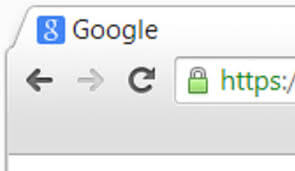SSL Certificates (HTTPS) is very well known phrase in web security worldwide, however very few consumers are truly familiar with this term and what it is or how it performs. HTTPS is mandatory on all ecommerce business platforms for users and web server security on globally.
Secure Socket Layer (SSL or HTTPS) certificates were designed and developed by Netscape to create a secure tunnel when transferring sensitive data between site users and web hosts. The execution of SSL certificate on web platforms increase the security protocol called encryption and decryption technology between browsers and servers. In critical terminology where an SSL certificate is the authentication of web browsers and servers by a trusted third party which is called and well known as Certificate Authority (CA) internationally.
Steps of SSL Certificates (HTTPS) Execution
- A web page is created by a web browser – https:// usually
- A public key is sent by a web server along with its SSL certificate
- The browser then verifies that the certificate is issued by a trusted source and that the certificate is valid
- Upon confirmation, the public key is then used by a web browser to encrypt a random symmetric encryption key and is transmitted to the server with the URL that is encrypted and required along with the other encrypted http data.
- The symmetric key is then decrypted by a web server using its private key and the server then uses the symmetric key to decrypt the http data and URL.
- The requested html document and http data is then transmitted by the web server encrypted with the symmetric key.
- And finally the http data and html document is decrypted by the browser using the symmetric key and the information is displayed.
Various Types of SSL Certificates
SSL (HTTPS) certificates are available in many types, but selection depends on the SSL security needs, whether it’s for a single host name or multiple host names. There are options to select a different SSL certificate every time based on web site.
The following list are the types of SSL certificates which are being available at HTTPS to secure web site, web servers, and web users over the internet.
- Dedicated SSL Certificates
- Share SSL Certificates
- Free SSL Certificates
- WildCard SSL Certificates
Advantages of SSL Certificates
1. Web Server Validation
HTTPS (SSL Certificate) protects your web site, servers, and web user’s sensitive information through encrypted and decrypted technology. An SSL certificate will pass the validation between users and browsers to authenticate the information before sending to servers. The SSL will be issued from a trusted third party platform which is called Certificate Authority (CA) in web security Internationally.
SSL certificate raise the secured and the toughest environment to stop online fraudsters, scam, and hacking while transmitting data over the internet.
2. Confidential Transmission
An ECommerce business transaction includes the transmission of confidential information such as credit card, bank details, and PayPal credentials from users. While transmitting sensitive information to servers the SSL certificate encrypts unreadable code and characters from sensitive information using encryption and decryption algorithms. The entire process creates and unreadable format of sensitive details. This eases the concern and increases trust levels in site users that they can relax and feel confident that their sensitive data will not fall into the wrong hands.
3. Trust and Confidence
Installing an SSL certificate on an eCommerce web site, ultimately this HTTPS secure environment will raise the message for customers; this platform is serious about customer’s sensitive information. Ultimately the entire secure ecommerce experience will improve web user’s trust and confidence over the online shop.










